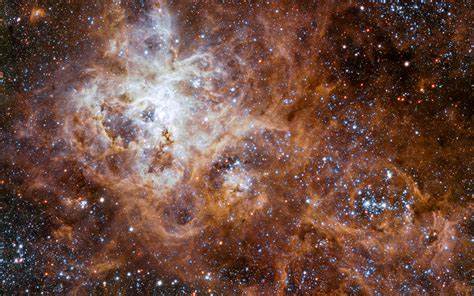A recent post by National Aeronautics and Space Administration (NASA) has left internet users stunned. The space agency, on 11 January, had shared an image of a supernova remnant (SNR), which had been formed due to a massive star explosion.
The picture shows a swirl of various colours such as blue, purple, red and yellow, which represent different elements, forming an orb-like structure. The SNR stands out from the multitude of stars surrounding it due to its colours.
According to NASA, most of the oxygen in the universe is produced from supernova explosions like the one in the picture. Such events can generate oxygen capable of fuelling thousands of solar systems.
As per the official website of NASA, SNRs accelerate cosmic rays at velocities very close to the speed of light. They also distribute heavy elements throughout the galaxy and release a great amount of energy, heating up the universe.
Such explosions are also crucial for sustaining life on Earth, as essential elements like iron and oxygen come from these explosions.
The image was collected with the help of the space agency’s Chandra X-ray Observatory. It has garnered over 15 lakh likes till date. Many people have called the photo “epic”, while others have asked questions about how far the SNR is from Earth.
This is not the only post by NASA that has gone viral in recent times. A few days ago, the agency had posted a visualisation video of the Monkey Head Nebula. The video received much appreciation from Instagram users, with many being left awestruck by the visuals.
The Monkey Head Nebula lies approximately 6,400 light-years away from Earth. Also known as the NCG 2174, it is a star forming region where the newly formed celestial bodies illuminate the centre of the nebula through radiation from the surrounding gases.
In 2014, the nebula was imaged by NASA’s Hubble telescope for its 24th anniversary.





